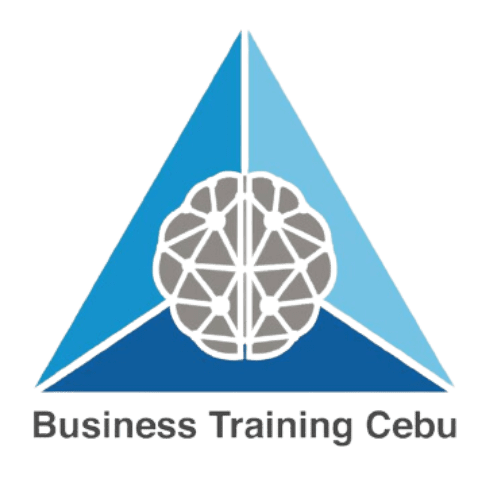Financial Literacy in Cebu: Empowering Individuals for Economic Success
Financial Literacy in Cebu: Empowering Individuals for Economic Success


Financial literacy is a vital life skill that empowers individuals to make informed decisions about managing their money, saving for the future, and investing wisely. In Cebu, one of the Philippines’ most vibrant economic hubs, the importance of financial literacy is growing as the city continues to develop its economy, creating more opportunities for individuals and businesses to thrive. However, the rapid pace of growth also presents financial challenges, making it essential for Cebuanos to improve their financial knowledge and skills.
This article explores the state of financial literacy in Cebu, the importance of financial education, available resources, and how improving financial literacy can foster economic development and individual prosperity in the region.
The Importance of Financial Literacy
Financial literacy refers to the knowledge and skills required to make informed and effective decisions regarding personal financial management. This includes understanding basic concepts such as budgeting, saving, investing, debt management, and financial planning. In today’s fast-paced economy, individuals with strong financial literacy are better equipped to achieve their financial goals, avoid debt, and build a secure financial future.
The importance of financial literacy in Cebu cannot be overstated. As the city grows into a business and economic hub, individuals and entrepreneurs need the tools to navigate complex financial systems, manage their income, and make investment decisions that will benefit them in the long term. Financially literate individuals are less likely to fall into debt traps, more likely to save and invest, and better positioned to contribute to the region’s overall economic health.
Financial Challenges in Cebu
Cebu’s economic growth, while providing many opportunities, also poses challenges. With increasing urbanization and the rising cost of living, Cebuanos need to be more financially aware to manage their finances effectively. Some common financial challenges faced by individuals in Cebu include:
- Lack of Savings: Many individuals struggle to save money due to living paycheck to paycheck. A lack of awareness about the importance of emergency funds and long-term savings plans contributes to this problem.
- Debt Management: Credit cards, loans, and easy access to consumer financing have led many Cebuanos into debt. Without proper financial education, individuals can find themselves overwhelmed by interest payments and falling deeper into debt.
- Limited Investment Knowledge: Although Cebu has a growing economy, many individuals are hesitant to invest due to a lack of knowledge about investment options. Whether it’s the stock market, real estate, or entrepreneurship, the lack of financial education on these topics prevents people from growing their wealth.
- Entrepreneurial Challenges: Cebu is home to many small businesses and entrepreneurs, but financial literacy among business owners is crucial for sustaining and scaling these enterprises. Many entrepreneurs struggle with cash flow management, funding, and budgeting, which hampers their ability to grow their businesses.
The Role of Financial Literacy in Economic Empowerment
Financial literacy serves as a foundation for personal and community economic development. When individuals understand how to manage their money, they can save more, invest wisely, and build assets that contribute to long-term financial security. This, in turn, contributes to the overall economic growth of the region.
For example, a financially literate population is more likely to:
- Save and Invest: People with financial knowledge understand the importance of saving a portion of their income and investing in opportunities that can generate wealth. This can range from investing in stocks and mutual funds to purchasing real estate or starting a business.
- Manage Debt Responsibly: Understanding how to manage and reduce debt helps individuals avoid high-interest loans and make sound decisions regarding borrowing. This improves their creditworthiness and financial standing.
- Plan for the Future: Financial literacy enables individuals to plan for their future, whether by saving for education, retirement, or emergencies. By developing a solid financial plan, Cebuanos can protect themselves against unforeseen events and ensure financial stability.
- Support Entrepreneurship: Financially literate entrepreneurs are more capable of managing their business finances, understanding cash flow, and seeking appropriate funding. This enables their businesses to grow and succeed, contributing to the local economy by creating jobs and opportunities.
Financial Literacy Programs in Cebu
In response to the growing need for financial education, several organizations in Cebu are stepping up to provide financial literacy programs for individuals, entrepreneurs, and even students. These programs aim to empower Cebuanos with the knowledge and tools to manage their finances effectively.
1. Banks and Financial Institutions
Local banks and financial institutions in Cebu, such as BDO, Metrobank, and UnionBank, regularly offer financial literacy seminars and workshops for their clients and the general public. These programs cover topics such as budgeting, debt management, savings, and investment options. Some banks also offer free online resources, financial calculators, and educational materials that help individuals improve their financial knowledge.
2. Non-Governmental Organizations (NGOs)
Several NGOs in Cebu are committed to improving financial literacy in underserved communities. These organizations conduct outreach programs aimed at teaching basic financial skills to individuals who may not have access to formal financial education. Programs often target women, youth, and low-income families, helping them better manage their money and make informed decisions about their financial future.
3. Government Initiatives
The Philippine government has recognized the importance of financial literacy and has implemented various initiatives across the country, including Cebu. Through the Bangko Sentral ng Pilipinas (BSP), the government runs financial education programs aimed at increasing awareness about responsible money management, saving, and investment.
The Department of Education (DepEd) also integrates financial literacy into the school curriculum, ensuring that young Filipinos learn the basics of personal finance before entering the workforce.
4. Educational Institutions
Several universities and colleges in Cebu offer courses and workshops on personal finance and entrepreneurship. Schools such as the University of San Carlos and the University of Cebu host financial literacy programs for students, helping them develop skills in money management, investing, and budgeting at an early stage.
Financial Literacy for Entrepreneurs
Entrepreneurs play a vital role in Cebu’s economy, and financial literacy is essential for their success. Many businesses fail due to poor financial management, making it crucial for business owners to understand their finances.
Several organizations and business development centers in Cebu provide specialized financial literacy programs for entrepreneurs. These programs focus on teaching entrepreneurs how to create business plans, manage cash flow, track expenses, and secure funding. Cebu-based organizations such as Cebu Success Institute and Business Training offer short courses in financial management for small and medium-sized businesses, empowering entrepreneurs to take control of their financial futures.
The Future of Financial Literacy in Cebu
As Cebu continues to grow economically, the importance of financial literacy will only increase. With more businesses emerging, more employment opportunities, and greater access to financial products, Cebuanos needs to stay informed about how to manage their personal and business finances effectively.
The future of financial literacy in Cebu lies in making financial education more accessible to all sectors of society. While there are already programs in place, expanding these initiatives to reach more people, especially those in underserved communities, will ensure that the benefits of financial literacy are widely felt. By promoting financial literacy at all levels—students, employees, entrepreneurs, and retirees—Cebu can foster a culture of financial responsibility, reduce poverty, and boost economic growth.
Conclusion
Financial literacy is a critical skill for individuals and businesses in Cebu to navigate the complexities of the modern economy. Through education and empowerment, Cebuanos can improve their financial well-being, make informed decisions, and contribute to the region’s economic success. By continuing to invest in financial education and providing accessible resources, Cebu can build a financially literate population ready to seize opportunities and achieve financial independence.
